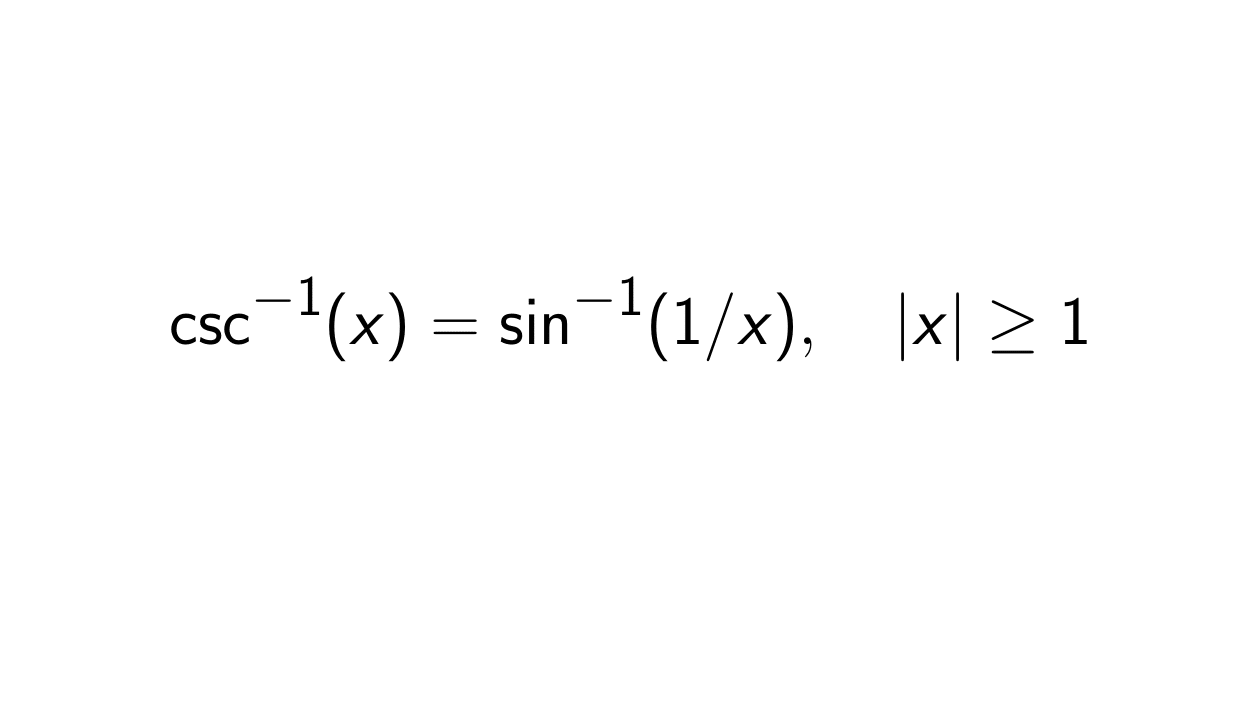Proof. Notice that the functions \csc^{-1}(x) and \sin^{-1}(1/x) are defined on the next intervals:
\begin{align*}
\csc^{-1}(x) \text{ where } \lvert x \rvert \geq 1
\end{align*}\begin{align*}
\sin^{-1}(x) \text{ where } -1 \leq x \leq 1.
\end{align*}\begin{align*}
y = \csc^{-1}(x) &\iff \csc(y) = x \\
&\iff \frac{1}{\sin(y)} = x \quad \text{since } \csc(y) = \frac{1}{\sin(y)} \\
&\iff \sin(y) = \frac{1}{x} \\
&\iff y = \sin^{-1}(1/x).
\end{align*}